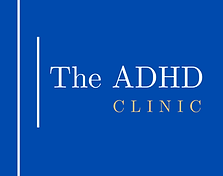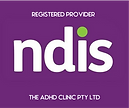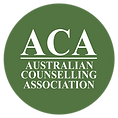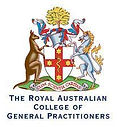.png)
_edited_edited.png)
THE ADHD CLINIC
0447 805 206
In-Person - 112 Drummond Street North Ballarat.
Worldwide Telehealth & Workplace Training
NDIS Provider. No Bulk Billing.
1. You can take our quiz to see if you might have ADHD.
2. If you think you do, and you
would like to be formally assessed
for ADHD (or/and ASD) then make a
booking to see our clinic GP.
Book an 'initial consultation in clinic'. We accept clients aged 7+.
3. Request a referral for your assessment when you see our clinic GP.

4. 1-4 weeks later you will be assessed by a psychiatrist from Fluence Clinic. Costs for this are organised through Fluence clinic. Look them up here. www.fluenceclinic.com
5. After you get a diagnosis and if you find out you have ADHD, book a shorter appointment to see our clinic GP and ask for a medication permit. This takes 3 weeks to come through. We will contact you when we receive your permit.
6. You can then book for Telehealth or in-clinic ADHD Counselling & Coaching. These taught skills work well with medication.
7. You can also book some Telehealth sessions with our exercise physiologist to get a fitness program up and running.

9. Aim: Be happier in your life.

What Can ADHD Look Like?

Restlessness or excessive fidgeting
Feelings like you have to keep moving.
Rejection Sensitivities
Impulsive behaviours or
decision-making. A harsh inner critic if you make poor choices.
Days where you feel paralysed
and overwhelmed out of the blue.
Challenges in maintaining attention, starting & focusing on tasks.
Forgetfulness or
disorganised thoughts.
Difficulty in task completion or following through on commitments, despite your best effort.
Poor time management, time blindness, hyperfocus or tendency to procrastinate.
Our clinic supports future Victorian legislation for GPs to be able to diagnosis ADHD. We believe that all people should have access to affordable ADHD assessment, diagnosis and access to medication. We believe that current diagnostic and medication management is financially inequitable and unaffordable for many people. We believe that current costs for an ADHD assessment and diagnosis in order to get medication are unacceptably high.
.png)



So... WHAT DOES OUR CLINIC OFFER?
GP ADHD & ASD Assessment Referrals, Medication Management
Mental Health & Relationship Counselling. NDIS Provider.
ADHD Coaching.
Depression & Anxiety
Exercise Programs
Workplace Consultancy
ADHD Corporate Training
ADHD180 Training
BOOK ONLINE
We do online bookings.
If you are seeing Dr Wilcox for the first time then book 'first consultation'. Medicare rebates available.
Telehealth* & In-Person
*you must see Dr Wilcox in person before being able to claim Telehealth Medicare rebates.
CONTACT US
support@theadhdclinic.com.au
Text or Ph: 0447 805 206
Please be prepared to leave a message if phoning.
WHAT WE OFFER
GP ADHD Medication Management
ADHD & ASD Referrals
Mental Health Therapy
Depression & Anxiety
Relationship Counselling
ADHD Coaching
Exercise Physiology
Workplace Consultancy
Find out about Autism.

Empowering individuals in
their work, study, community and relationships through
GP services, medication management, referrals, mental health counselling, ADHD coaching,
workplace training & consultancy.
Where differences can be respected, valued and
strengths leveraged.


To ensure that everyone has access to the help that they need.
That medical care in Australia is financially equitable.
That people can access their prescription medications as needed.
That help for individuals who have ADHD is compassionate and professional.
To develop a common language, basing it on the 'lived experience' of individuals with ADHD and
to share this language with our patients and clients so that every voice can be heard.
We want individuals to feel that they are the best version of themselves within
a context that understands them.
We promote pre-emptive management of neurodiversity.
Our mission is to ensure that people get help when they need that help.
Through our workplace consultancy, we also work within management and HR teams in workplaces, schools and universities to help them understand the needs of their neurodiverse employees and students, meet these needs, and ensure that workplaces can become centred around connection.
That individuals feel that they have influence within their sphere.


.png)



.png)

